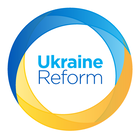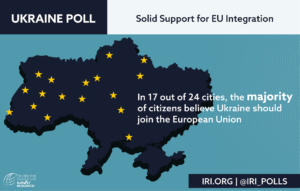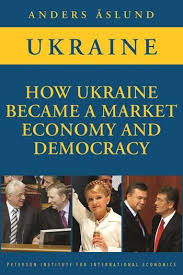US Secretary of State Antony Blinken today warned that there’s “evidence” Russia is moving to “destabilize Ukraine from within,” according to reports.
“We’ve seen this playbook before — in 2014 when Russia last invaded Ukraine. Then, as now, they significantly increased combat forces near the border,” Blinken said. “Then, as now, they intensified disinformation to paint Ukraine as the aggressor to justified preplanned military action.”
There’s also been a “massive spike … in social media activity pushing anti-Ukrainian propaganda, approaching levels last seen in the lead-up to Russia’s invasion of Ukraine in 2014,” he added.
In the meantime, President Volodymyr Zelenskyy said that Ukraine had foiled a Kremlin-sponsored coup, CEPA’s Olga Tokariuk reports. Ukrainians will resist Russian aggression, she notes. The only question is whether the West will help.
 The US administration, together with European allies, must articulate a more sophisticated, comprehensive and long-term strategy for consolidating democracy and spurring economic growth in Ukraine, say Michael McFaul and Oleksiy Honcharuk (above). With so many democratic rollbacks around the world in recent years, Biden’s team must double down on strengthening Ukraine’s still-fragile democratic experiment. Nothing would please Putin more than democratic breakdown in Ukraine.
The US administration, together with European allies, must articulate a more sophisticated, comprehensive and long-term strategy for consolidating democracy and spurring economic growth in Ukraine, say Michael McFaul and Oleksiy Honcharuk (above). With so many democratic rollbacks around the world in recent years, Biden’s team must double down on strengthening Ukraine’s still-fragile democratic experiment. Nothing would please Putin more than democratic breakdown in Ukraine.
Biden and his democratic allies should create a Donbas Development Fund — a Marshall Plan for eastern Ukraine — whose resources would be released after the war’s end, they write for The Washington Post. The mere creation of this fund would convey hope to the region’s people, who currently suffer under terrible occupation, as well as those now displaced, that a better future is possible if the war ends, add McFaul, director of Stanford University’s Freeman Spogli Institute for International Studies and former Ukrainian prime minister Honcharuk, the Bernard and Susan Liautaud visiting fellow at the Freeman Spogli Institute.
 What are Russia’s motives? asks Serhii Plokhy of Harvard’s Ukrainian Research Institute:
What are Russia’s motives? asks Serhii Plokhy of Harvard’s Ukrainian Research Institute:
- First, to arrest Ukraine’s drift toward the West: Putin claimed that if he had not annexed the peninsula, it would have become a launching pad for NATO forces.
- Second, to undermine and discredit Ukrainian democracy, whose success would send an undesirable signal to the Russians: if Ukraine can be democratic and successful, why cannot Russia do the same?
For decades, the Soviet Union was an authoritarian force in a polarized world, Stanford’s Center on Democracy, Development and the Rule of Law adds. The political landscape changed forever on December 1, 1991, when Ukraine held a referendum on its independence from the Soviet Union, garnering overwhelming support from tens of millions of its citizens. This was the pivotal moment that paved the way for the signing of the Belavezha Accords on December 8, 1991, and the final collapse of the USSR.
CDDRL hosts a special screening of the docuseries COLLAPSE: How Ukrainians Destroyed the Evil Empire (see below), followed by a conversation with the filmmakers. December 8, 2021 11:00 AM – 7:30 PM
 AGENDA
AGENDA
Additional speakers to be announced.
10:15 – 11:00 am – Registration open for in-person attendees
11:00 – 11:10 am – Opening Remarks:
- Kathryn Stoner, Mosbacher Director of the Center on Democracy, Development and the Rule of Law, Stanford University
- Oleksiy Honcharuk, Former Prime Minister of Ukraine, Bernard and Susan Liautaud Visiting Fellow at the Freeman Spogli Institute for International Studies
11:10 am – 1:30 pm – Panel 1: The Soviet Collapse and the Collapse of Democratic Promise
- Moderator: Vitali Shkliarov, Political analyst, Belarusian activist, and film director
- Marta Dyczok, Associate Professor (History and Political Science), Western University
- Rose Gottemoeller, Steven C. Házy Lecturer at the Center for International Security and Cooperation, Stanford University, and Former Deputy Secretary General of NATO
- Norman Naimark, Robert & Florence McDonnell Professor of E. European Studies, and Senior Fellow, by courtesy, at the Hoover Institution, Stanford University
- Serhiy Plokhiy, Mykhailo S. Hrushevs’kyi Professor of Ukrainian History and Director of the Ukrainian Research Institute, Harvard University
1:30 – 2:30 pm – Lunch Break (boxed lunches will be served)
 2:30 – 4:00 pm – Panel 2: How Did Ukraine Transition into a Democracy?
2:30 – 4:00 pm – Panel 2: How Did Ukraine Transition into a Democracy?
- Moderator: Myroslava Gongadze, Chief, Ukrainian Service, Voice of America
- Oleksiy Honcharuk, Former Prime Minister of Ukraine, Bernard and Susan Liautaud Visiting Fellow at the Freeman Spogli Institute for International Studies
- Steven Pifer, Former US Ambassador to Ukraine, William J. Perry Research Fellow at the Center for International Security and Cooperation, Stanford University
- Kathryn Stoner, Mosbacher Director of the Center on Democracy, Development and the Rule of Law, Stanford University
4:00 – 4:30 pm – Break
4:30 – 6:30 pm – Screening of the docuseries COLLAPSE: How Ukrainians Destroyed the Evil Empire
COLLAPSE is a seven-episode docuseries and political thriller that explores the decay of the Soviet Union in its last months. For the first time on screen, the Ukrainian perspective was brought to the global narrative, as well as recently unclassified details from the CIA and KGB archives. The series was produced by Suspilne, a Ukrainian public broadcaster.
6:30 – 7:30 pm – Q&A with Filmmakers
- Moderator: Yaroslav Lodygin, Film director, scriptwriter, and radio host, producer of “COLLAPSE”
- Marta Dyczok, Associate Professor (History and Political Science), Western University
- Serhiy Plokhiy, Mykhailo S. Hrushevs’kyi Professor of Ukrainian History and Director of the Ukrainian Research Institute, Harvard University
- Oleksandr Zinchenko, “COLLAPSE” screenwriter and historian RSVP







